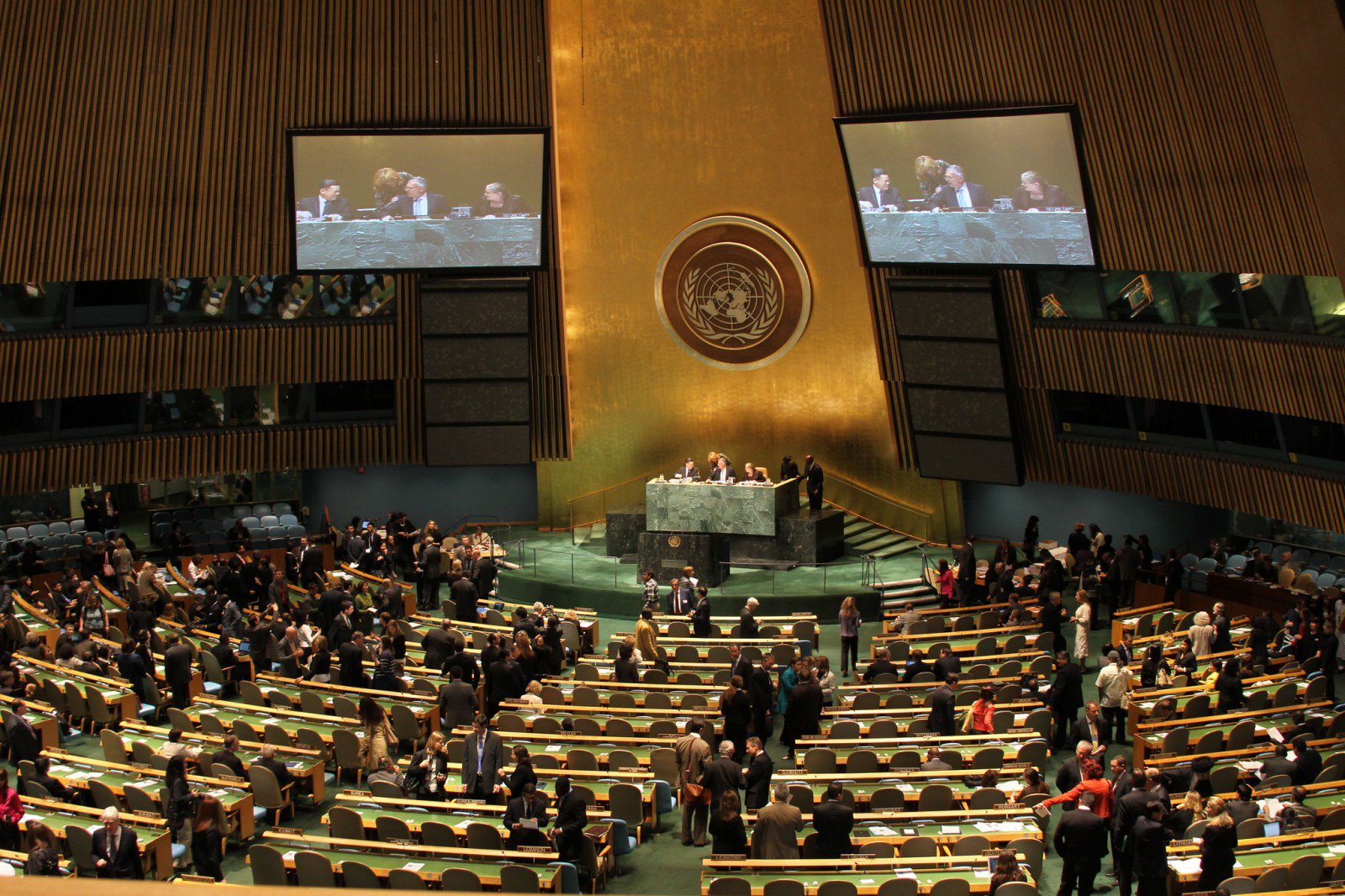ODI’s Global Reset Dialogue invited leaders from around the world to share their visions for building a more equal, resilient and sustainable future beyond the coronavirus. Our Chief Executive Sara Pantuliano, one of the moderators of the Dialogue, shares her response to ideas put forward for reshaping global leadership.
Right from its inception, the coronavirus crisis has been marred by a profound lack of international cooperation. The pandemic has been addressed through uncoordinated and generally isolated national responses. It has put the crisis of multilateralism into stark relief. Countries have been acting selfishly (Karman), following deeply nationalistic agendas, and old international institutions and norms have been found wanting (Hamdok).
We are witnessing a serious crisis of legitimacy of the current multilateral system and related aid structures, which are increasingly seen as outdated and ineffective.However, the pandemic makes it clearer than ever that multilateralism, not unilateralism, is the answer for building a better new normal (Pillay). Instances of multilateral innovation have invariably emerged from systemic crises. The pandemic offers a window of opportunity to help advance a long overdue overhaul of global cooperation structures.
Reshaping global cooperation ‘from the ground up’
Some of the contributors to the Dialogue have advocated for support to existing multilateral mechanisms (Mingzhao), with additional mechanisms for global health governance (Clark), and governments leading a reshaping of global institutions (Robinson, Georgieva, Ribera). But several other commentators have observed that it is time for new forms of global cooperation shaped ‘from the ground up’ (Heyzer), which can forge collaborative relationships. When governments are in retreat, it is civil society and the private sector that need to step up and shape a different form of multilateralism, going beyond inter-state cooperation (Miliband).
Multilateral cooperation must be revitalised and reset with human rights at the centre (Saiz). We must pay as much attention to community-level organisations as we do the big global bodies, especially those organisations run by (and for) women (Gates). Locally elected leaders like mayors can play a critical role in reinvigorating global cooperation efforts. They can connect community conversations with global dialogues aimed at fostering cooperation. These can facilitate co-learning and address collective challenges (Aki-Sawyerr).
Broad coalitions must be the basis for a ‘new’ multilateralism
Governments will remain essential in many arenas, such as peace-making, peace-keeping and international law. However, ODI research discussed in the comments to the Dialogue (Kelsall, Laws and Sharp) suggests that the complex range of public policy and health problems thrown up by Covid-19, and global cooperation challenges in general, will only be solved through effective coalitions that bridge global and local state and non-state actors. Coalitions of like-minded actors, but also of the not-so-usual suspects, coalescing around a common goal are the basis for a ‘new’ multilateralism. This should not be focused on a radical restructuring of multilateral institutions, but on collective action that promotes democracy, public health, and sustainable development.
This approach involves gathering together a wide variety of interested parties – governments, civil society groups, the private sector, philanthropy, international organisations – around specific initiatives that may or may not lead to the establishment of formal organisations, but are less opaque and bureaucratic than established institutions. The current geopolitical context is not amenable to new global accords.
This form of international cooperation therefore prioritises flexibility and agility, dispensing with universal, binding commitments in favour of voluntary pledges that enable participants to lead by example. Recent examples of initiatives that fit this model include: Gavi, The Vaccine Alliance; The Global Fund to Fight AIDS, Tuberculosis, and Malaria; The Extractive Industries Transparency Initiative (EITI); The International Campaign to Ban Landmines (ICBL); and C40, a network of the world’s megacities committed to addressing climate change.
Societal pressure and collaboration are vital in the push for change
To create issue-specific coalitions that can come together to develop collaborative solutions to transnational problems, pressure, innovation and politically-smart strategising from non-state and non-central government actors (municipalities, regional governments, private sector, civil society) will be essential.
This can already be seen in action around climate change, where cities, subnational governments, and the private sector are often in the lead. Developing a better understanding of where and when non-state actors can make positive contributions is an important task ahead. This also requires becoming more aware of how societal pressure to create these coalitions can be ramped up, and how collective action problems can be overcome.
In countries where the state is strong and minded to do something about these problems, such coalitions will play a supplementary role. Where the state is weak or unconcerned, they may have to play a substitutive role. Ensuring that multi-stakeholder coalitions themselves remain accountable and loyal to the constituencies from which they derive their legitimacy, rather than to the multilateral system, albeit a reconfigured one, will continue to be a major challenge.
Social movements – labour, human rights, environmental, feminist, indigenous – will need to work together to build the collective counter-power (Saiz) to act globally and insist on change (on global governance, climate, economic justice, global public health). At the moment, the quest for change is still too weak to achieve the transformation needed on a global scale (Sharpe).
Citizens all around the world have already shown a sense of responsibility in doing, individually and collectively, what many governments have failed to do effectively in the response to the pandemic. Historical turning points can only be seen in hindsight. However, the Covid-19 crisis does offer a critical moment to push for new forms of multi-stakeholder multilateralism aided by digital connectivity that, as engaged citizens, we must seize.

